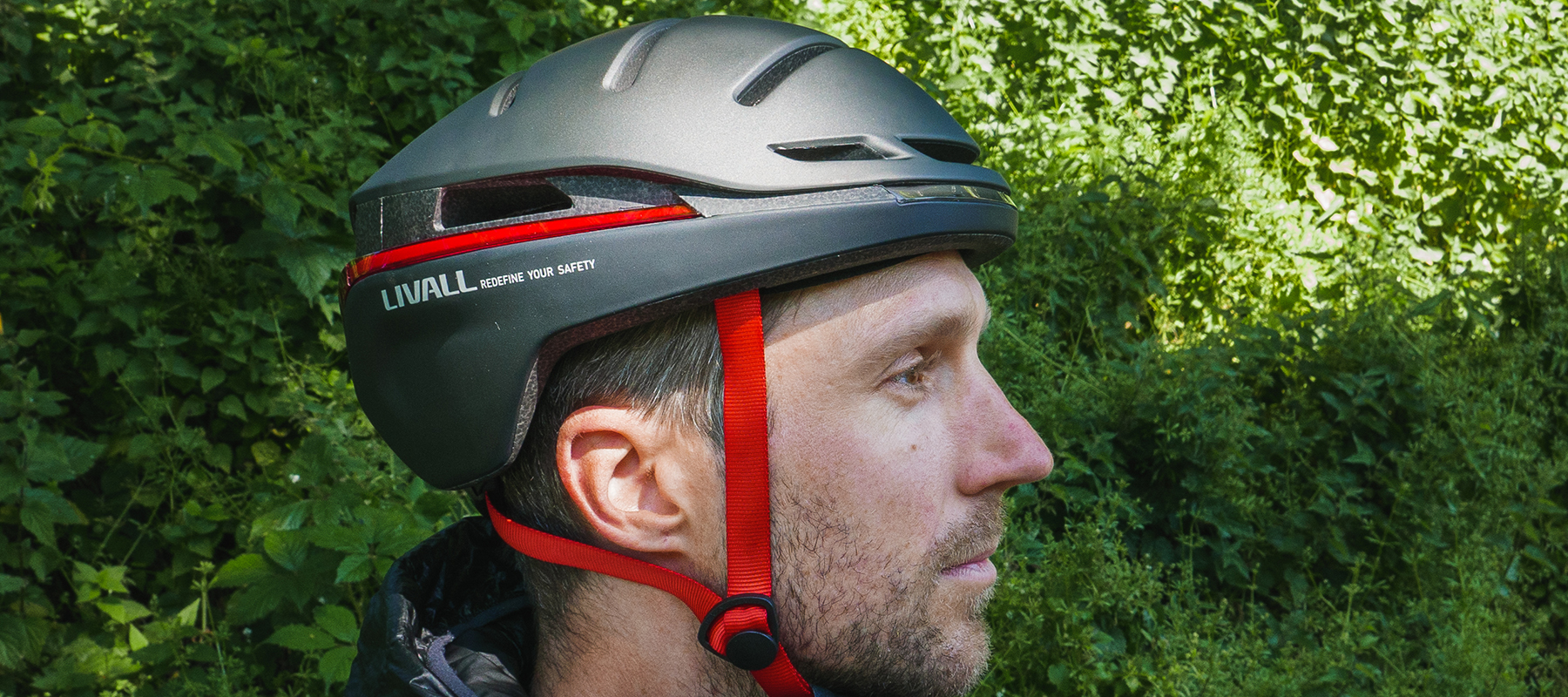Bike Perfect Verdict
A well-constructed smart helmet with plenty of clever, if slightly niche, safety features ideal for urban riding.
Pros
- +
Good construction
- +
Lots of features for the price
- +
Works well
Cons
- -
Round fit may not suit everyone
- -
Relatively heavy
- -
Venting could be better
Why trust BikePerfect
Based in Shenzhen, China, Livall has been producing a range of smart helmets for almost a decade – in fact, it claims to have made the world’s first smart helmet back in 2015. With a slogan of ‘Redefine Your Safety’ it’s clear that Livall was created with a vision to help cyclists ride safer and smarter, especially during urban bike journeys and commutes. Having reliable and safe kit can make all the difference for successful daily commuting through the city, so let’s see if the EVO21 and its many features are up to the task.
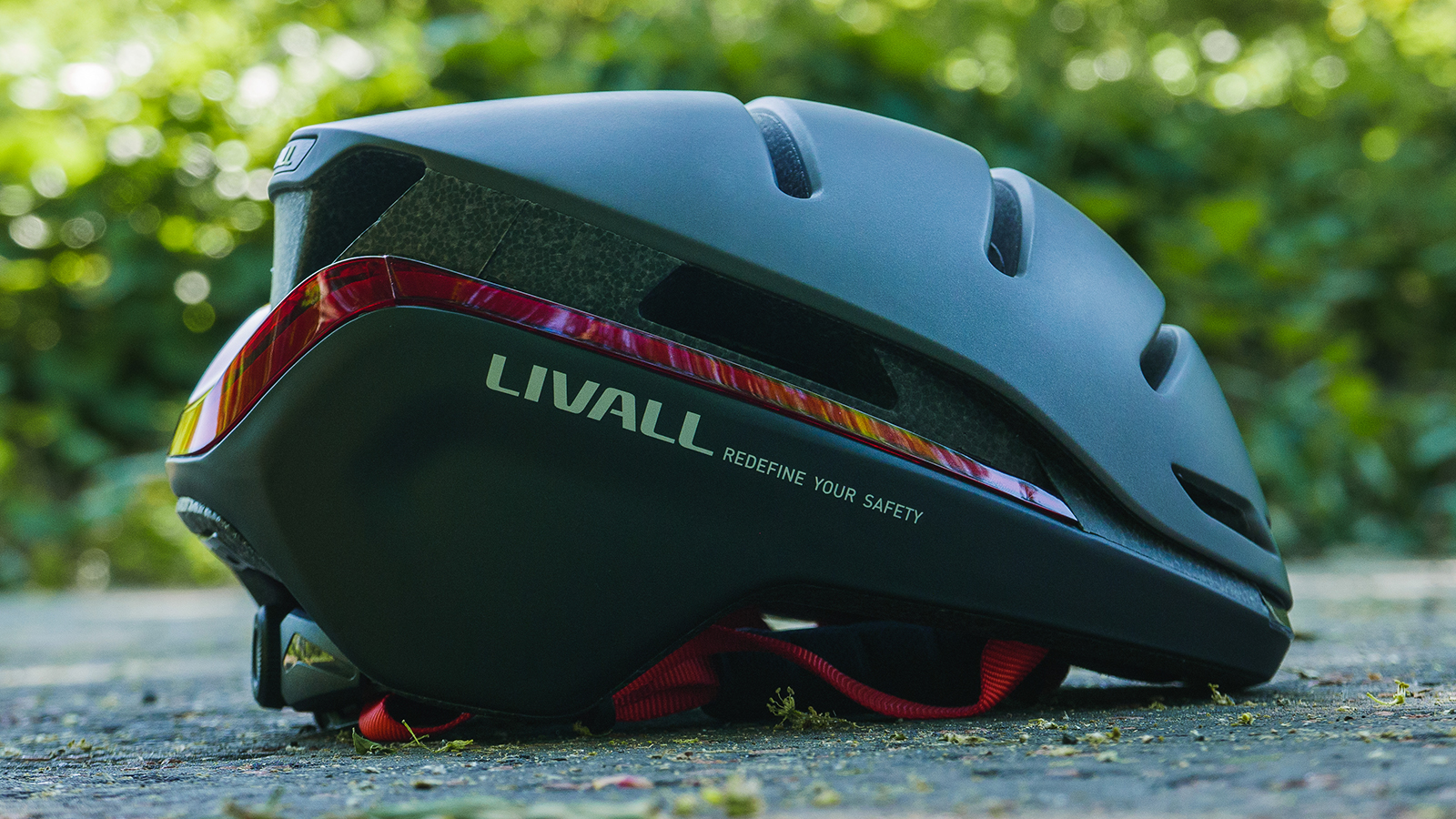
Design and specification
The EVO21 is one of Livall's top-tier helmets with an RRP of $129/£99.99. it is quite literally packed full of features – I can’t say I’ve ever had to read such a long instruction manual for a helmet before! Out of the box (which features several award icons that the helmet has received, mainly for innovation and safety), I was impressed with the overall construction of the helmet. The outer shell – in the matte Dark Night finish on my model – is seamlessly joined to the EPS liner, and the built-in lights themselves are fitted nicely and feel fairly solid. Inside, there are several removable comfort pads, a dial closure system to secure the helmet and straps that feature adjustable dividers, as well as a removable chin pad to keep any excess strap neat and tidy. There are five vents on the front, two on the side and a couple on the rear to help keep you cool.
There are two lights fitted to the helmet: one small front light and a large 270-degree rear light that extends down most of the sides of the helmet. Tucked away at the back to prevent rain ingress, you’ll find the on/off button and a magnetic USB charging port, both of which have rubber covers to protect from water.
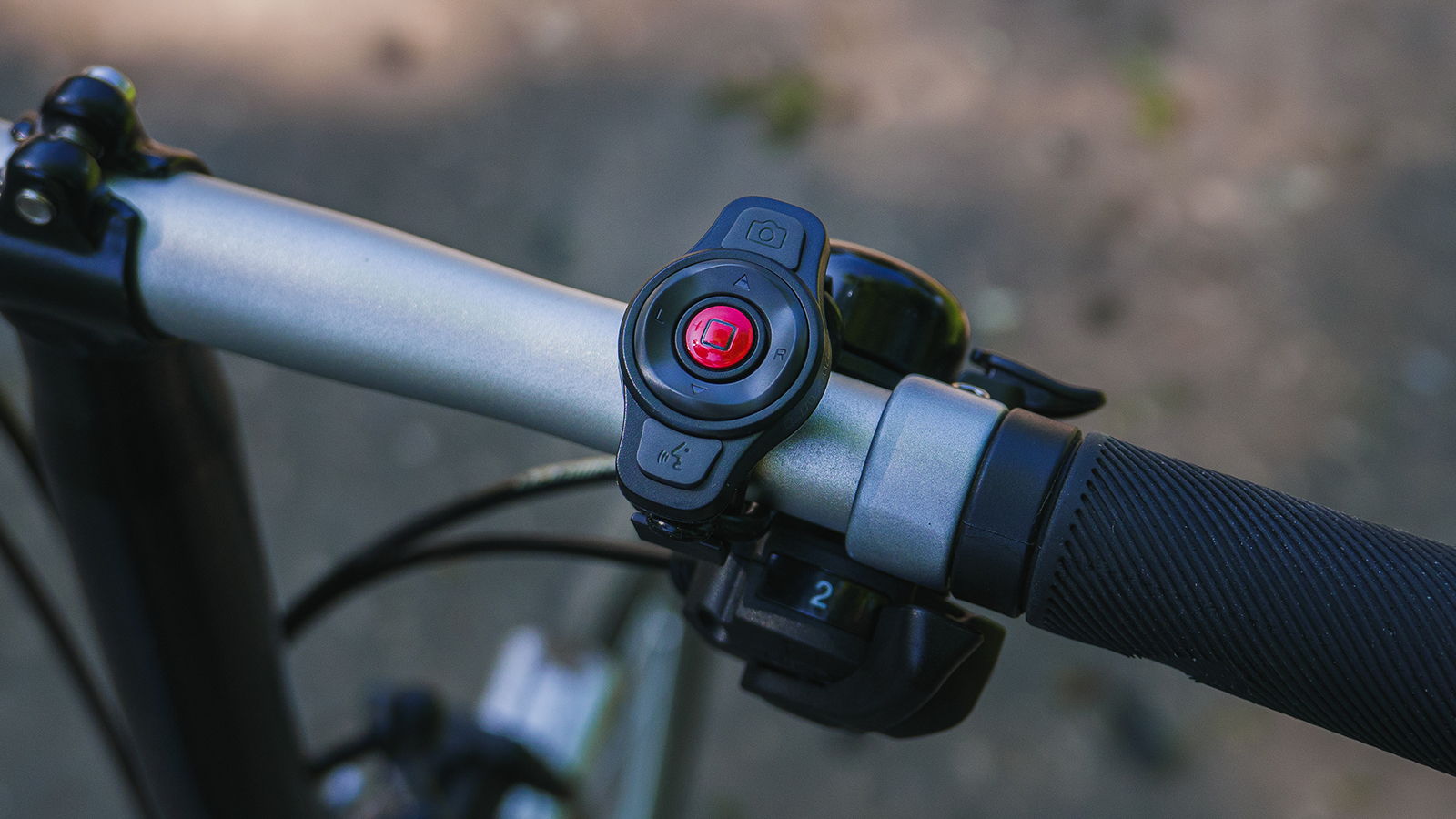
Also in the box you’ll find the BR80, or Bling Remote controller, a battery-operated, handlebar-mounted wireless controller for the helmet lights with two different rubber mounts for different sized bars, a USB charging cable and two soft drawstring bags: one for the helmet, one for the accessories. There are also QR codes for downloading the Livall Riding App.
So, what exactly does the remote control operate, and what does the app do? Firstly, the app can be used much in the same way as Strava. You can record rides and then share them with other app users along with data such as distance, a map, time and even photographs. There is also automatic crash detection that, when your smartphone is connected to the helmet, can sense if the rider has been in an accident and will alert a chosen contact of the accident by SMS. In addition, you can alter certain light options via the app such as flash pattern type. Secondly, the remote allows you to change between flash patterns on the helmet, as well as activate the turn indicators. You can also remotely control your phone's camera with the remote. As if that wasn’t enough, the helmet features an automatic brake warning light and ambient light sensors that will automatically adjust the lights if you find yourself commuting into the night.
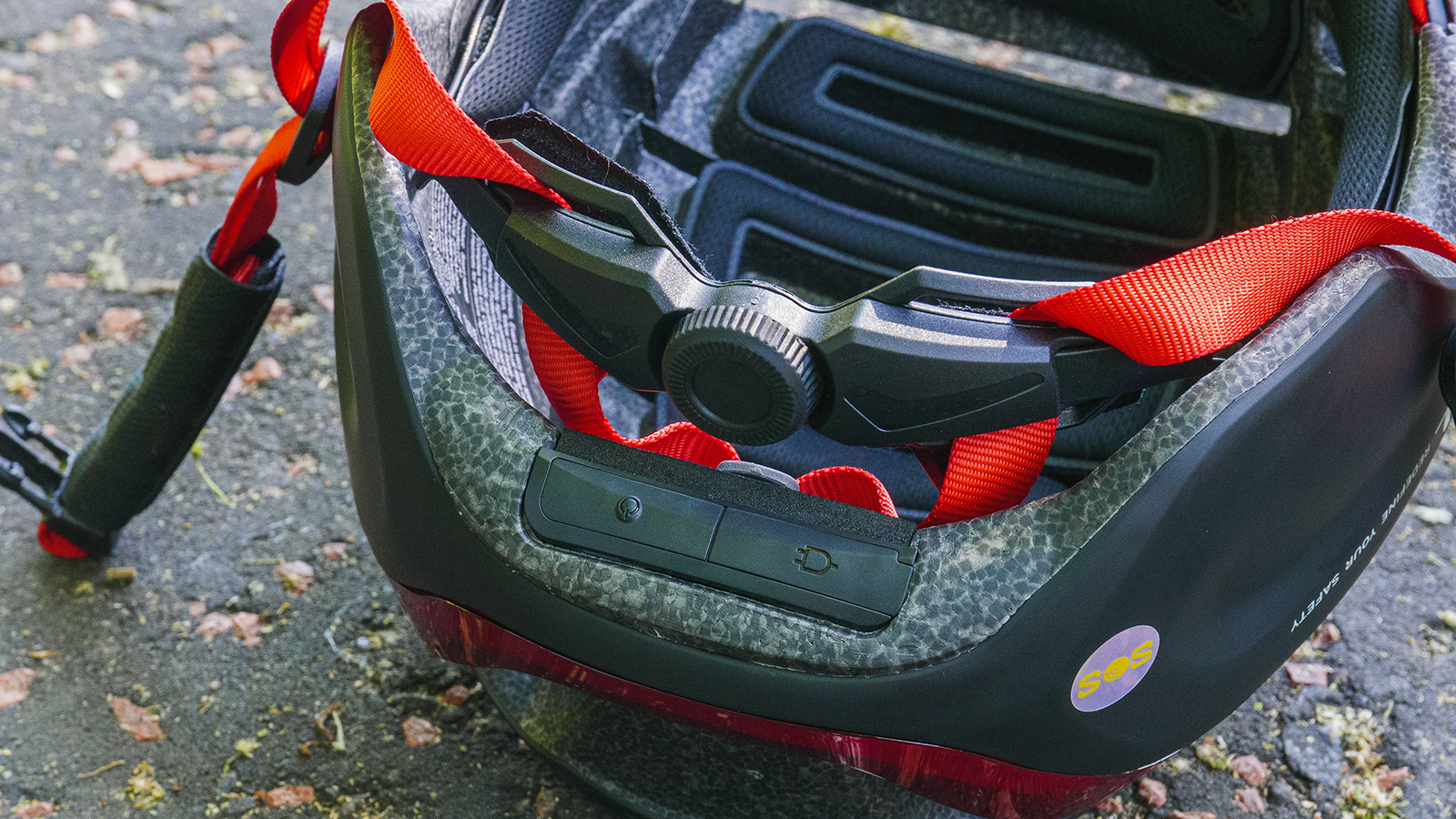
Performance
I used the EVO21 for commutes through Edinburgh as well as some longer casual rides, the type where I’d cruise around in regular cloths on my Brompton for a couple of hours. After I was impressed by the initial build quality and overall feel of the helmet, I was a little let down by the fit. I am a size large in helmets and I’ve found that that size fits me well with all other helmet manufacturers. On this, however, the fit felt just a little too snug at the front and back of the helmet. And while the dial closure worked great and offered some up and down adjustability, I still couldn’t reduce the feeling of snugness. It wasn’t enough to put me off using the helmet, and to be honest, I tended to forget about it when riding but I would suggest trying this on if possible before you buy.
The vents actually did an effective job at keeping my head cool. Featuring considerably less vents that I’m used to on road helmets, I was a bit worried that I would overheat but this was not the case even on sunny days.
Holding the on/off button down for one second activates the lights. The helmet can detect when you are moving and will go into standby mode if inactive for too long. When cycling, the lights will flash one of three patterns. I found all the patterns to be usable, so it is a matter of preference which one you choose. At night, the lights on the front and the back emit a decent amount of light, however, they were a little underwhelming when used during daylight, especially if it is sunny. Pressing the ‘Left’ or ‘Right’ button on the remote control activated the respective indicator. While the rear lights are usually red, the rear indicator lights are orange and move in a pulse pattern towards the direction you intend to turn, much as you now see on higher specced cars. The automatic rear brake lights also did a good job of detecting smooth braking and changing the light to warn the cyclists or drivers behind.

I tested the automatic crash detection by dropping the helmet onto some grass. While I appreciate this is hardly the most scientific of tests, I was surprised by how well it worked. Granted, it wasn’t 100 percent successful but even giants like Garmin struggle to get this to work every time. (I was reminded of my friend's wife who received an emergency text message from his Edge when a gust of wind toppled his bike outside a cafe.)
The Livall Rider app works as intended and recorded my rides accurately. And while the size of the community may not rival that of Strava, for example, it does seem to be very active and encouraging towards each other.
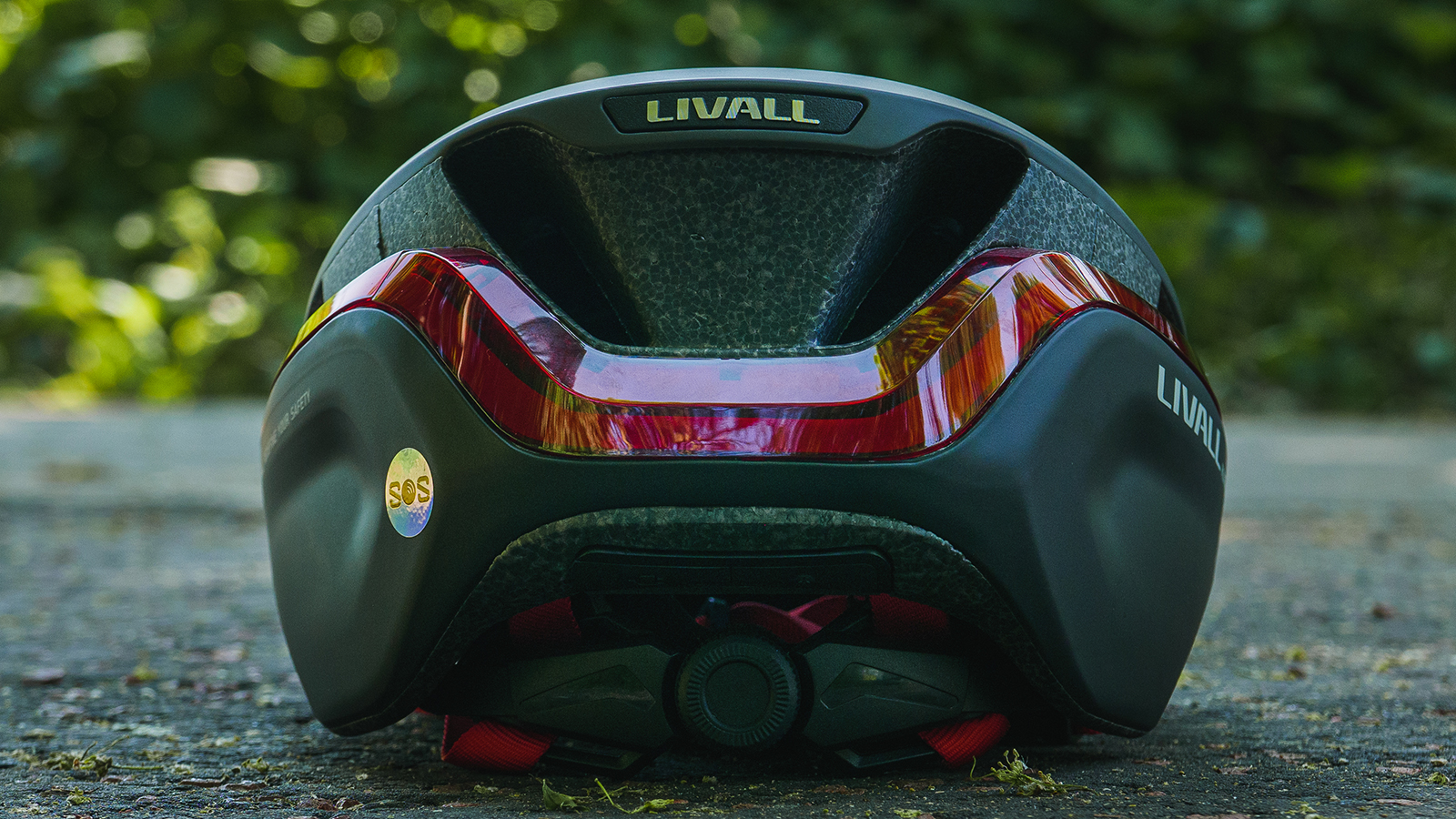
Verdict
I think it’s important to note that I am probably not Livall’s target audience. I would consider myself a fairly experienced cyclist and while I can definitely see the benefit of helmet-mounted lights, the other features are not something I would personally look for. I think it is important to point out that in the eyes of the law in the UK, lights must be fitted to the bike and therefore helmet lights should be a secondary addition. There is also some contention over the effectiveness of indicator lights on bicycles, some claiming that using hand signals is a part of basic cycling proficiency and that drivers are not yet accustomed to indicator lights on bikes.
Having said that, the technology featured throughout this helmet certainly works and there is a strong case that it would indeed improve the safety for some cyclists. And if improving people's safety gets more people commuting by bike, making short journeys by bike, or simply riding for pleasure or fitness, then that’s surely a good thing.
Overall, it's a well-constructed smart helmet with clever, if slightly niche, safety features. A similarly priced alternative would be the Lumos Ultra Smart helmet, or, a budget-friendly version without all the bells and whistles would be the Abus Hyban that features a rear light only but for half the price.
Tech specs: Livall EVO21 Smart Helmet
- Price: $129 / £99.99 / €139.99
- Colors: Dark Night, Mint, Snow, Ultraviolet
- Sizes: M (54-58cm), L (58-62cm)
- Claimed Weight: 350g
